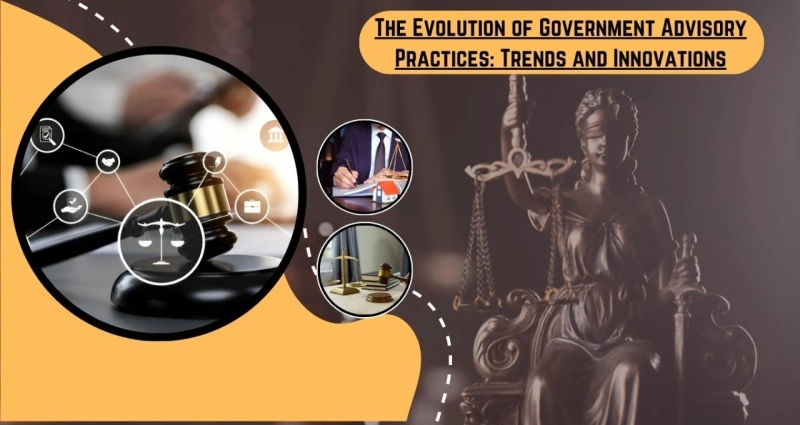Change is never simple. Sometimes, change inches forward quietly. At other times, it roars in, overturning everything you thought you could count on. The evolution of government advisory practice has been both. What started as straightforward legal guidance has grown into something far more complex and human.
This journey feels especially personal in India. It is not about navigating rules or ticking boxes. It is about finding direction in the middle of chaos. The journey is about bridging the traditions we cherish with the innovations we need. This isn’t just a story about policy or strategy. It’s about people. And what happens when advisors and businesses come together to create something bigger than compliance?
From Checklists to Conversations in Government Advisory Practice:
There was a time when advisors were called in to handle one thing. A quick review of a contract as well as a nudge on compliance. The relationship was functional as well as transactional.
But businesses today do not live in a black-and-white world. They are working in shades of gray. Companies are trying to decide in a maze of shifting rules and expectations. They need more than a checklist. They need a guide.
Picture an Indian company trying to expand into global markets. It is not about understanding international regulations but about interpreting how those laws interact with India’s unique complexities. You can picture a tech start up wrestling with both innovation along with compliance. How do they push boundaries without crossing them?
Advisors are no longer just solving problems; they’re preventing them. They’re not just handing over advice; they’re walking alongside businesses, helping them see not just the next step, but the entire path ahead.
The Influence of Technology on Government Advisory Practice:
Let us face it: the old way of doing things was slow. Advisors used to sift through stacks of papers. Mistakes were not rare—they were expected.
Technology was introduced gradually. AI tools can scan thousands of pages of regulations in seconds. Machine learning predicts policy trends before they are even announced. Advisors can now pinpoint risks and flag solutions faster.
This is a lifeline for Indian businesses. It means faster approvals as well as more time spent innovating instead of troubleshooting. It is the difference between playing catch-up and staying ahead.
Technology comes with its own challenges. Data privacy and ethical technological use are no longer side issues—they are front and center. Advisors have to make sure the tools they use are not just efficient but responsible.
Collaboration: It Takes a Village
Government advisory practice work used to be solitary. Advisors sat in their offices and sent off solutions. But that approach does not cut it anymore.
Government advisory is about collaboration nowadays. It is about bringing together businesses and communities to create something sustainable.
You may read: Guide to Finding the Best Corporate Law Firm In India
Take India’s push for renewable energy. These projects need more than regulatory approval; they need buy-in from every stakeholder. Advisors help bring everyone to the table—government officials, private investors, and even local communities. It’s not just about drafting contracts; it’s about creating connections.
Advisors act as peacemakers when conflicts arise. They mediate, negotiate, and find common ground. It is because avoiding court battles is not about saving money; it is about preserving trust.
Compliance is the New Moral Compass:
Compliance has always been a bit of a nasty term, let us face it. It meant doing just enough to avoid difficulty. It is not much more than a necessary evil.
However, compliance now encompasses much more than just staying out of trouble. Protecting people, the environment and the integrity of your company is about doing the right thing.
For Indian companies, this shift couldn’t come at a more critical time. Regulations here change often, and they change fast. ESG standards, data protection laws, and anti-corruption measures aren’t just boxes to tick—they’re the foundation of a company’s reputation.
Advisors are helping businesses move from “What do we have to do?” to “What’s the right thing to do?” It’s a shift that builds trust. And trust—in today’s world, everything.
It’s Always about People:
Policies, technology, compliance—they’re all tools. But at the heart of government advisory, there’s one constant: people.
Advisors aren’t just experts in the law; they’re partners in growth. They don’t just deliver answers; they empower businesses to find their own.
For Indian companies, this can be transformative. Training sessions, workshops, and ongoing support help businesses not only understand the rules but gain the confidence to navigate them independently. This isn’t just about solving problems—it’s about building relationship.
And advisors themselves? They’re learners too. New industries, new laws, new challenges—this is a profession that demands constant growth. The best advisors aren’t the ones who know everything. They’re the ones who never stop learning.
Walking the Tightrope: Tradition Meets Innovation
India is a country of paradox. It’s deeply rooted in tradition, where relationships are personal and trust takes time to build. But it’s also a country racing toward the future, where speed and efficiency are everything.
Advisors have to walk this tightrope every day. They honor the traditions that matter—taking time to understand their clients’ stories, listening to their struggles, and building solutions that reflect their unique realities. However, they also welcome innovation, employing cutting-edge tactics and technology to assist companies in maintaining their competitiveness in a global marketplace.
The ones who succeed are the ones who can do both. The ones who know that trust is built in moments of connection, not just transactions.
Conclusion
In India, the development of government advisory practice goes beyond simply adapting to changes. It's about taking the lead. It's about transforming difficulties into opportunity and confusion into clarity. This progress offers enterprises optimism. It demonstrates that there is hope even in a world where regulations are changing and expectations are rising. It is a means of thriving and not merely surviving. However, the path is not simple. Advisors must continue to be inquisitive, flexible, and devoted to their profession. It is because, in the end, this is about more than simply paperwork and procedures. People are the focus. It has to do with trust.



